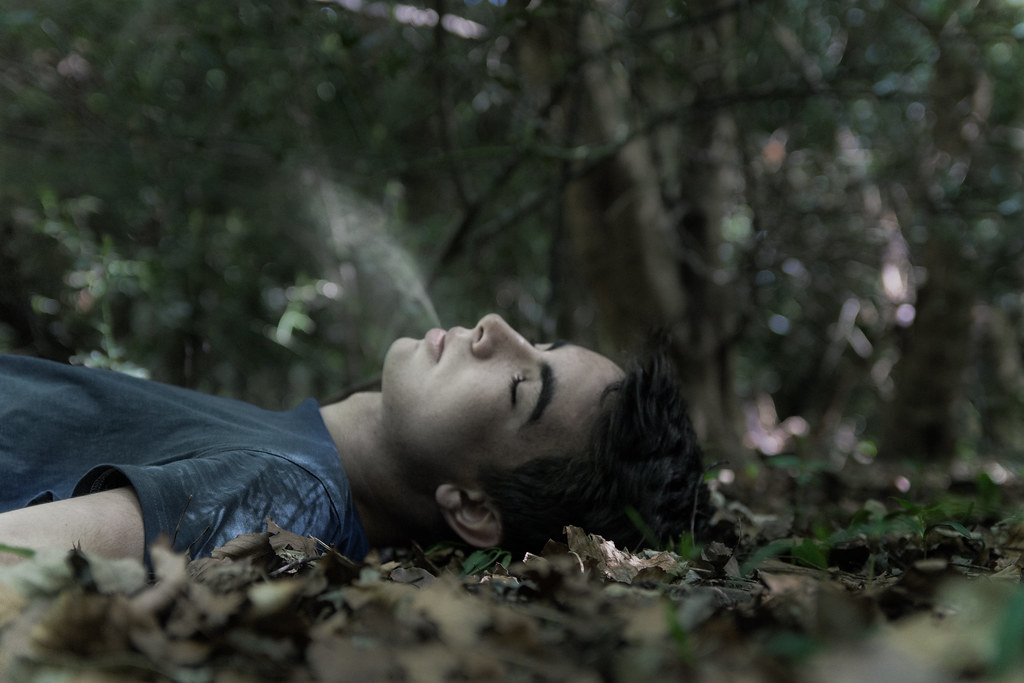 |
| Photo credit: Elias Ruiz Monserrat on Flickr |
I mean, just in that list above we have demons, vampires, ghosts, dragons, magic, superpowers, aliens, and more. And yet, when I’m watching or reading, I rarely, if ever, question any of it.
Suspension of disbelief, is, in many cases, a contract established both by genre and the universe set up at the beginning of the story. When I turn on Supernatural I know to expect, well, the supernatural. When I start Half Lost next year, I know to expect magic and witches and really dark conflicts. When I pick up a fantasy, or dystopia, or sci-fi, or paranormal book, I have expectations for each set up before I even read the back cover copy.
But those expectations are really broad, and exactly what I should expect—and accept—depends very much on the world set up at the beginning of the story.
In the very first episode of Supernatural, we’re introduced to demons, unspecified magic, murder mysteries, ghosts, Hunters (who kill said demons and ghosts) and object possession. From the beginning we learn that Hunters track down all manner of supernatural creatures, and to the Winchesters, supernatural activities are an everyday “normal” occurrence. This then sets up for the rest of the seasons that continues to build on everything from obscure legends to biblical stories to mythologies from around the world. But because it’s set up from the beginning that these out there imaginings are, in fact, real and normal for the Winchesters to hunt down, viewers accept it without question.
In the very first chapter of Harry Potter and the Sorcerer’s Stone, we’re introduced to the terms “Muggles,” “You-Know-Who,” and “Voldemort,” curiously behaving owls and cats, mysterious people in cloaks, a magic lighter that can take light from street lamps called a Put-Outer, a cat that transforms into a professor, a flying motorcycle and the lightning bolt scar. This sets the stage for magic umbrellas, wands, fantastical creatures and a school of magic—all of which builds to darker and more incredible events that again, readers have no reason to question.
So how do you set up your world in a way that readers won’t question?
- Follow genre conventions. As I said, readers kind of begin developing their expectations of the book depending on where it is placed in a bookstore. Granted, these expectations are pretty broad and have loads of room for variation and intricacies, but this is the basic level that you should be working off of.
- Set up your foundational blocks at the beginning to gradually build off of throughout. This does not mean you have to set up everything in the first chapter—in fact, if you do, you’ll likely end up with an info dump which is not something you want. But what you do want to do is begin setting up the rules of the world of your book, whether that’s everyday supernatural occurrences or cats that turn into professors.
- Don’t break your own rules. Once you’ve established your rules, you need to stick with them. Breaking your own rules is the #1 perpetrator of shattering that suspension of disbelief. Fantasy worlds make sense because they operate within a certain sect of rules; only wizards (not muggles) can perform magic; devil’s traps and salt circles can be used to trap a demon and keep a ghost out, respectively. If Uncle Vernon up and created a patronus or a low-level demon waltzed out of a devil’s trap without explanation, readers and viewers would not be happy about it.
Has a book, movie, or TV show ever broken your suspension of disbelief? Why?
Twitter-sized bite:
How do you create and maintain a reader's suspension of disbelief? @Ava_Jae shares three straightforward steps. (Click to tweet)








No comments:
Post a Comment